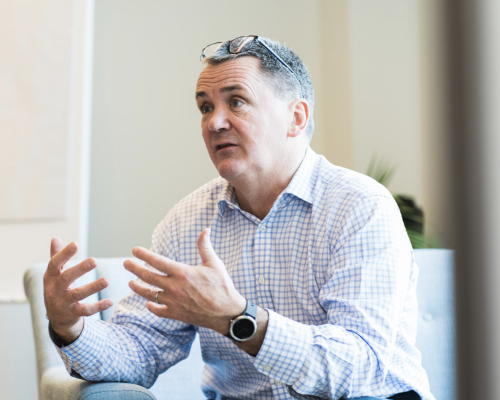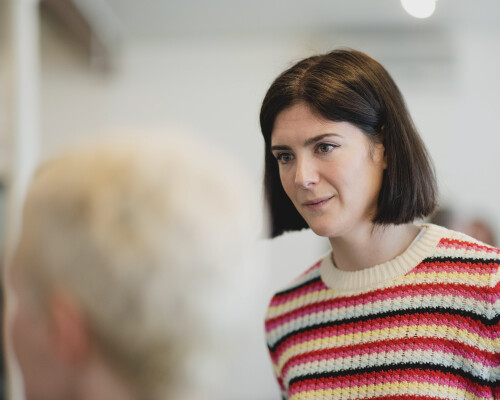The CIPD’s Learning at work report highlights coaching as one of the most effective development tools.
Effective coaching can support the best leaders in their quest to continue to grow and make an impact. It also guides aspiring leaders on their journey to self-awareness, helping them become the kind of leaders’ others want to follow.
The success of coaching, however, relies not only on the coach's expertise but equally on the readiness and commitment of the client - the individual being coached.
5 Signs that You're Ready for an Executive Coach
Being ‘coach-ready’ refers to the state of mind and preparedness an individual needs to fully engage with the coaching process and maximize its benefits. A coach-ready person typically exhibits the following:
Openness to Feedback – a willingness to receive constructive feedback and apply it, even if it involves addressing uncomfortable truths or challenges to their current mindset or behaviour.
Self-Awareness and Reflection – a coach-ready individual is open to self-reflection and recognizes the value of exploring their own thoughts, behaviours, and emotions to foster growth.
Commitment to Growth - a genuine desire to develop personally or professionally, understanding that growth requires effort, patience, and consistency.
Emotional Readiness - they are emotionally prepared to handle potential discomfort or vulnerability that can come with deep personal or professional exploration.
Willingness to Experiment - open to trying new approaches, strategies, or perspectives suggested by the coach, even if they involve stepping outside of their comfort zone.
Without these, coaching can become less effective, as the individual may resist change or fail to fully engage in the developmental work necessary for progress.
The Cost of Not Being Prepared for Executive Coaching
When someone is not 'coach-ready,' the effectiveness of the coaching process is limited, potentially stalling both personal and professional growth. Some key downsides include:
Lack of Progress - individuals may struggle to apply insights and tools from coaching, leading to little or no meaningful progress.
Resistance to Change - coaching often involves self-reflection and behaviour change. A lack of openness can result in resistance, making it difficult to break old habits or embrace new approaches.
Wasted Resources - coaching requires time, effort, and financial investment. If someone isn’t coach-ready, these resources may be wasted without any tangible results.
Missed Opportunities - coaching provides valuable opportunities for learning, growth, and career advancement. Not being receptive can mean missing out on these possibilities.
Stagnation - without a willingness to grow, individuals may remain stuck in their current situation, unable to evolve their skills, leadership abilities, or career trajectory.
Ultimately, readiness is key to maximizing the benefits of coaching and achieving meaningful outcomes.
How Can I Get the Best from my Coaching?
Marshall Goldsmith, Scott Osman, and Jacquelyn Lane – the authors of ‘Becoming Coachable’ - identify four key areas that make up coachability – i) being open to change, ii) being open to feedback, iii) being open to taking action, and iv) being open to being held accountable.
In an interview with Forbes magazine they say “Doubts and hesitations are welcome; in fact, it’s normal. That’s why we use the words “open to”. If the leader is open then they are willing to suspend doubt and accept change, outside perspectives, and the coaching process.”
Here are some key tips from the authors to help you get the most out of your coaching experience. These steps will guide you in preparing for, engaging in, and applying your coaching learnings effectively.
How to Prepare for Executive Coaching
- Clarify your why - understand why you want coaching. What do you hope to achieve—new behaviours, better results, or specific outcomes? Ask yourself, How will I know if my coaching has been successful?
- Gather baseline data - identify what feedback or data you have that reflects how others perceive you. This could be from a 360° review, psychological profiling, or organisational surveys. Having this information will help you track your progress.
- Commit to the process - be ready for the effort that change requires. Coaching is more than ticking a box on your development plan - it requires a genuine commitment to improvement. If you're not fully prepared to embrace change, it's better not to set unrealistic expectations for yourself or others.
Where to Start with Executive Coaching
- Find your right coach - coaching is built on mutual respect and trust. The initial meeting, often called a ‘chemistry session’ is a chance to see if you're comfortable being open and vulnerable with your coach.
- Set clear goals - establish specific outcomes for your coaching journey, including timelines, meeting schedules, and budget. If you find yourself regularly cancelling sessions, it may be a sign that coaching isn’t your priority right now.
- Take small, actionable steps - after each session, identify small, specific actions to implement. Hold yourself accountable using these ‘Four 3s’:
- What will I do in the next 3 hours (immediately)?
- What will I do in the next 3 days (short term)?
- What will I do in the next 3 weeks (change my behaviour)?
- What will I do in the next 3 months (change how others see me)?
How to Apply What You've Learned from Executive Coaching
- Share your commitments - communicate your improvement goals to others—your boss, peers, or team - so they can help keep you accountable.
- Track your progress - regularly check in with someone you trust about your key focus areas. Even a quick call or conversation can help keep you on track and encourage daily self-reflection.
- Be flexible and adjust - understand that your coaching goals may evolve as your role or circumstances change. Stay committed to making progress, even as new challenges and opportunities arise.
Coaching requires a commitment of time and energy, a willingness to let go of old habits, and the courage to try and experiment with new approaches. At School for CEOs, coaching plays a vital role in leadership development, whether as part of a broader programme or as a tailored, stand-alone intervention to meet your personal development needs.
Our diverse coaching panel is equipped to guide leaders and teams through change and high-pressure environments, helping them grow and succeed. Specialising in executive coaching, we also support individuals through onboarding and career transitions.
Many coaching clients choose to deepen their experience with Psychological Profiling, which helps uncover strengths and areas for growth. Others complement their coaching journey by attending The Vital Few programme for additional development.
If you are interested in coaching, reach out for a discovery call with one of the School for CEOs Executive Coaches to discuss your coach readiness and see if we’re the right fit.
Contact us at: https://www.schoolforceos.com/contact-us/





